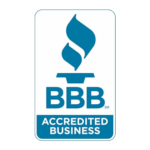What to Do When Moving for a Job Relocation
Introduction
Moving for a job relocation can be an exciting yet daunting prospect. It involves not only a change in career but also a change in location, which can bring about a mix of emotions and challenges. As a professional moving company owner with a deep knowledge of the moving industry, I understand the intricacies involved in relocating for a job and the importance of proper planning and organization. In this article, I will provide you with a comprehensive guide on what to do when moving for a job relocation, from preparing for the move to settling into your new home.
Preparation is Key
When it comes to moving for a job relocation, preparation is key to ensure a smooth and successful transition. Here are some essential steps to take before the moving day:
– Research your new city: Familiarize yourself with your new city by researching its neighborhoods, amenities, and local culture. This will help you adjust to your new surroundings more easily.
– Notify your employer: Inform your employer of your upcoming move as soon as possible to coordinate the relocation process and any necessary paperwork.
– Create a moving budget: Establish a moving budget to determine how much you can afford to spend on the relocation. This will help you plan your expenses more effectively.
– Declutter and organize: Sort through your belongings and declutter items that you no longer need or use. This will help reduce the amount of items you need to pack and unpack.
– Hire a professional moving company: Consider hiring a professional moving company to assist with the relocation process. They can help with packing, transportation, and unpacking, making the move less stressful for you.
Packing and Organizing
Packing and organizing your belongings is a crucial part of the moving process. Here are some tips to help you pack efficiently and stay organized:
– Start early: Begin packing your belongings well in advance of the moving day to avoid last-minute stress.
– Label boxes: Label each box with its contents and the room it belongs in to make unpacking easier.
– Use quality packing materials: Invest in durable boxes, bubble wrap, packing paper, and tape to protect your belongings during the move.
– Pack strategically: Pack items from the same room together and keep essential items separate for easy access upon arrival.
– Create an inventory: Keep a detailed inventory of your packed boxes to ensure nothing gets lost or misplaced during the move.
Managing the Move
Managing the move effectively is essential to ensure a smooth transition to your new home. Here are some practical tips to help you manage the moving process:
– Coordinate with your moving company: Stay in touch with your moving company to confirm the moving date, address, and any specific requirements you may have.
– Arrange for utilities: Set up utilities such as electricity, water, and internet at your new home before your arrival to avoid any disruptions.
– Update your address: Update your address with the post office, banks, and any other important entities to redirect your mail to your new address.
– Pack a essentials box: Pack a box with essentials such as toiletries, medications, snacks, and important documents to have on hand during the move.
– Stay organized: Keep important documents, valuables, and personal items with you during the move to ensure they are safe and easily accessible.
Settling into Your New Home
Once you have arrived at your new home, it is time to settle in and make it your own. Here are some tips to help you navigate the process of moving for a job relocation:
– Unpack strategically: Unpack your belongings room by room, starting with essentials such as bedding, kitchenware, and clothing.
– Explore your new surroundings: Take the time to explore your new neighborhood, meet your neighbors, and discover local amenities and attractions.
– Join local groups: Connect with local groups, clubs, and organizations to meet new people and build a sense of community in your new city.
– Establish a routine: Settle into a daily routine that includes work, leisure activities, exercise, and self-care to maintain a sense of normalcy.
– Stay in touch with loved ones: Keep in touch with family and friends through calls, video chats, and visits to help ease the transition of moving to a new city.
Conclusion
Moving for a job relocation can be a challenging yet rewarding experience. By following the tips and guidelines outlined in this article, you can make the moving process smoother and more manageable. Remember to prepare in advance, pack and organize efficiently, manage the move effectively, and settle into your new home with a positive attitude. With proper planning and a positive mindset, you can turn your job relocation into a successful and fulfilling journey. Good luck on your relocation adventure!

Hi, I’m Hayden Mattingly, the owner of Arch Moving, St. Louis’s #1 rated moving company. I’ve always believed that moving doesn’t have to be a stressful experience—it can be smooth, efficient, and even enjoyable with the right team on your side. That’s why I’m committed to providing top-notch service and care for every client, ensuring that your transition to a new home or office is seamless from start to finish.
At Arch Moving, my team and I pride ourselves on combining professionalism, reliability, and a personal touch. Whether you’re moving down the street or across the state, we treat your belongings like they’re our own. I’m passionate about making sure every client feels confident and cared for throughout the entire process.
If you’re looking for a moving company that truly puts you first, I’d love the opportunity to show you why Arch Moving stands out in St. Louis!
We’ll make this whole moving thing easy for you
Relax, we've got your back
We love what we do and it shows! No pressure quoting to stress-free moving day, we’ll take good care of you.


















.svg)